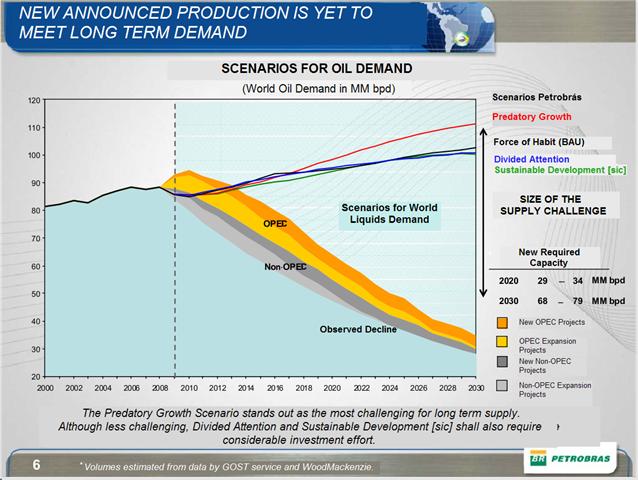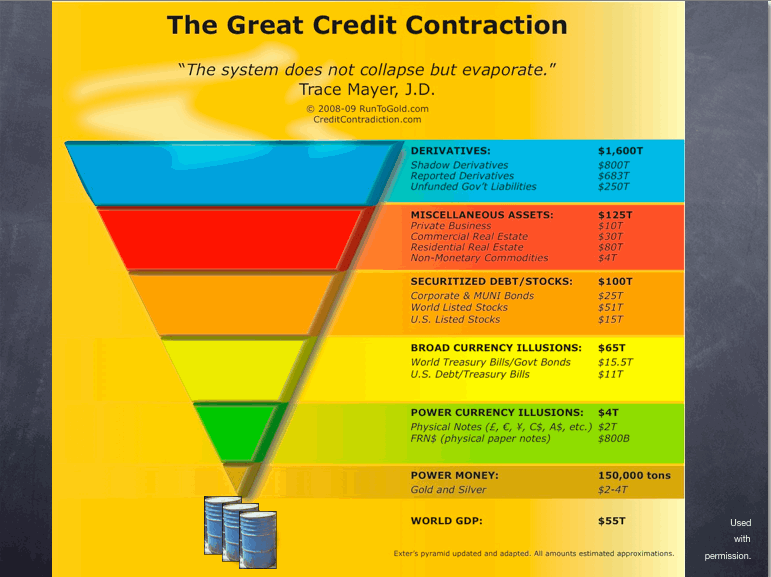A new paper titled
'Forecasting World Crude Oil Production Using Multicyclic Hubbert Model' in the journal
Energy & Fuels by Ibrahim Sami Nashawi, Adel Malallah and Mohammed Al-Bisharah of Kuwait University and Kuwait Oil company shows a new analysis of World oil peak production for conventional oil. Their estimate for
peak of conventional oil is 2014. Their implied world production decline rate is somewhere in the vicinity of 2.6% p.a.
World Oil production peak and cumulative estimates
Conventional is important, as it accounts for roughly 80% of the world's oil production. No known alternative, whether unconventional, biofuels or natural gas liquids can fill the gap left behind by conventional oil depletion.
Four years to peak is also significant, as we know from previous studies that a proper precautionary crash course mitigation program for peak oil would take roughly 20 years. That is,
20 years before the peak, which is now forecast to be within four years by the Kuwaiti researchers.
"Forecasting is not accomplished by consulting a crystal ball or a mystic of some sort, but by appraising the past, inspecting present conditions, and projecting these into the future based on the best available information."
Their decline rate, while
optimistic by historical accounts, is a sigh of semi-relief. If true, it'd mean a much less of a downslope of production loss than imagined by many other authors. This would give the world more time to adjust in an ordered manner. However, based on the decline rates of real fields in the world, driven by the best technology, their estimate of seems fairly optimistic. If the true decline rate is three times as high as it seems likely, it remains very unlikely that any society, except the oil exporting nations within yet-to-peak faction of OPEC have any time to structurally adjust to the change.
Why is this information still not on the front page of every newspaper on earth? Because it is bad news, it's abstract, it can always be denied due to commercial/geo-political reasons, and people just do not understand the
ramifications of oil peak.
For people writing about oil depletion finding supportive research can always feel rather schizophrenic. One one hand it is easy to feel vindicated about years of work of trying to get others to understand. On the other hand it is evident that people still do not get it and would rather just stick their head in the sand. This implies that on the average we all deserve what's coming to us.
Yet, four years is a long time. One can still do a lot of things personally in that time, even though it is very unlikely to change the big picture for all of us. It can also whizz by in an instant, depending on the choices one makes.
If you knew for sure that you had roughly four years before the slow decay really starts to kick in and turn a lot of good things into mush, then the only relevant question remaining is this:
What would you do if you had 4 years to prepare?









